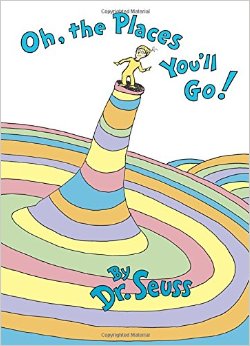The week has been filled with things linked to writing---well, they are linked for me, at least. Not relationship or statistical correlation that may be positive or negative, but a joining, building, bonding. A construction for the future.
I’m joining a flute quartet that is providing an instrumental background for the choir singing “All Things Are Connected.” The song, composed by Mary Lynn Lightfoot, emphasizes how we must care for the earth and has its roots in Native American wisdom. As I privately practiced my Flute 3 part alongside the droning metronome set at 72, it felt technical, methodical, and craft. But even as a quivering, rookie flutist I knew this was necessary—I had to get this as right as I could.
After a week of this private drone and focus, I joined the other three flutists under the direction of a musical artist who understood the power of merging, the essence of craft and art. Not only did she unite the four of us, but she also was building our work to join the choir. This was a choir I have never met or heard in an organization where I was not a member. All along, the musical director knew the choir and understood the congregation, the purpose of the service, the bigger picture.
Connecting the individual flute players in the quartet, then to the choir, and finally to the message and listeners was like joining my words and sentences to the plot, the purpose, and then to the readers. At that moment I realized music and writing are connected. There are steps in building these connections—you probably knew this all along but then and there, I saw them in a different way.
As a writer, there was a time I believed the focus on target audience was the highest priority. Maybe it is, but my flute quartet experience called me to reconsider. Strong, basic writing craft is essential—words and sentences and their connections to a plot with the metronome droning at 72. First things first.
Then comes the focus on readers. This may be nuance, light twists, a touch of hand—the art. This may be pace, pianissimo or forte, staccato or legato. The spotlight changes; sometimes it’s the choir and sometimes it’s the instrumental. The goal in music and in writing may be similar—a strong craft first, and then an artful connection to the reader and listener.
Does this connect for anyone else?
I’m joining a flute quartet that is providing an instrumental background for the choir singing “All Things Are Connected.” The song, composed by Mary Lynn Lightfoot, emphasizes how we must care for the earth and has its roots in Native American wisdom. As I privately practiced my Flute 3 part alongside the droning metronome set at 72, it felt technical, methodical, and craft. But even as a quivering, rookie flutist I knew this was necessary—I had to get this as right as I could.
After a week of this private drone and focus, I joined the other three flutists under the direction of a musical artist who understood the power of merging, the essence of craft and art. Not only did she unite the four of us, but she also was building our work to join the choir. This was a choir I have never met or heard in an organization where I was not a member. All along, the musical director knew the choir and understood the congregation, the purpose of the service, the bigger picture.
Connecting the individual flute players in the quartet, then to the choir, and finally to the message and listeners was like joining my words and sentences to the plot, the purpose, and then to the readers. At that moment I realized music and writing are connected. There are steps in building these connections—you probably knew this all along but then and there, I saw them in a different way.
As a writer, there was a time I believed the focus on target audience was the highest priority. Maybe it is, but my flute quartet experience called me to reconsider. Strong, basic writing craft is essential—words and sentences and their connections to a plot with the metronome droning at 72. First things first.
Then comes the focus on readers. This may be nuance, light twists, a touch of hand—the art. This may be pace, pianissimo or forte, staccato or legato. The spotlight changes; sometimes it’s the choir and sometimes it’s the instrumental. The goal in music and in writing may be similar—a strong craft first, and then an artful connection to the reader and listener.
Does this connect for anyone else?

 RSS Feed
RSS Feed
